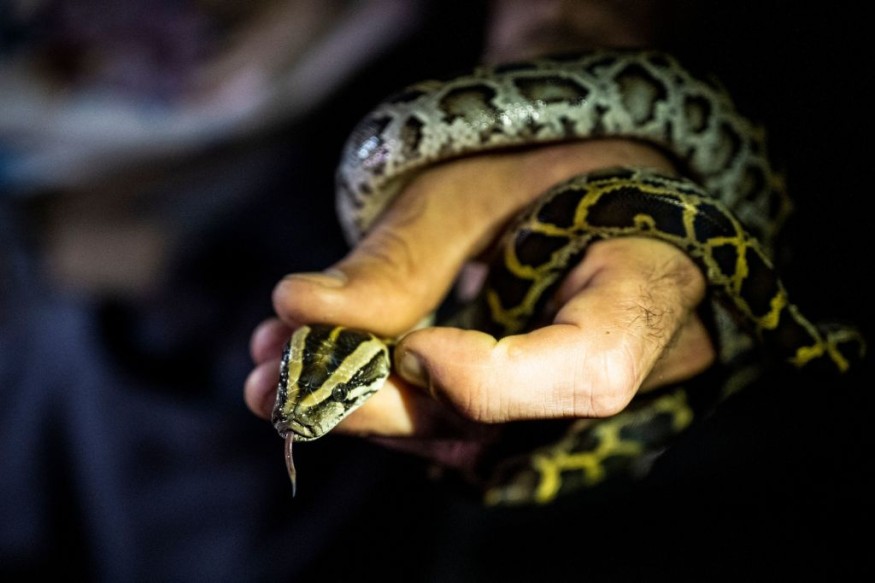A New York City man was charged for smuggling three Burmese pythons in his pants while traveling the US-Canadian border crossing.
The New Yorker could face a maximum sentence of 20 years in prison and a fine of up to $250,000 for violating both international laws and federal regulations in the United States on the illegal possession and trafficking of wild animals, which includes the Burmese pythons.
Canadian Border Python Smuggling

The New York man named Calvin Bautista, 36, was accused by local authorities for bringing the hidden snakes on a bus that crossed into northern New York in July 2018.
The charge was based on the importation of Burmese pythons that is regulated by an international treaty and local laws listing them as "injurious to human beings," NBC News reported.
Bautista, who hails from Queens, New York, was reportedly arraigned on Tuesday, October 4, in Albany regarding the federal smuggling charge and was released pending trial.
This is according to a news release from the office of US Attorney Carla B. Freedman, as cited by NBC News.
Burmese Pythons
Burmese pythons (Python bivittatus) are considered to be one of the world's largest snakes.
Native to Asia, this snake species is deemed invasive in Florida, where it threatens the population of native animals.
In previous years, the invasive species were reported colonizing the Sunshine State's natural ecosystems for decades, a story which was also covered by Natural World News in November 2021.
The pythons prey on small mammals and ranks as a competitor with other native species for food.
It made them one of the growing concerns of south Florida since the 1980s.
The large nonvenomous constrictor is found mainly in and around the Everglades ecosystem in south Florida where it remains a threat to native wildlife until now, according to the Florida Fish and Wildlife Conservation Commission (FWC).
The exact number of Burmese pythons in Florida remains unknown.
However, unconfirmed reports suggested that its population could be more than 100,000 across the state.
The fearsome reputation of the pythons in outcompeting native wildlife for food has led to the decrease of native mammal populations in the Everglades, according to Newsweek.
Invasive and Vulnerable Species
The Burmese python is a nocturnal predator that kills its prey by constriction.
It is the largest and most water-dependent among the Python molurus complex, even if it lives on land or on trees during its juvenile years, the International Union for Conservation of Nature (IUCN) said.
In particular, these invasive snakes threaten native species of amphibians, birds, bats, lizards, and other snakes.
It also poses a threat to humans, especially small children, as well as pet animals.
The elusive reptiles are also capable of damaging agricultural activities.
There are also several documented attacks of adult pythons on full-grown caimans, goats, pigs, and even pet owners.
Despite the fearsome nature of the Burmese pythons, they are still classified under the category of "vulnerable" by the IUCN Red List.
© 2026 NatureWorldNews.com All rights reserved. Do not reproduce without permission.





